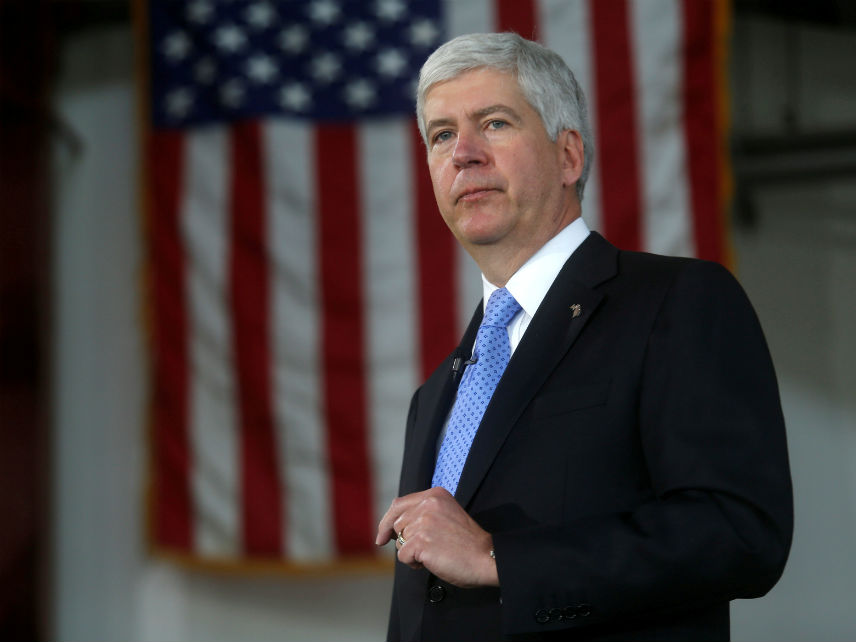Michigan Governor Pardons Drunk Driver, Leaves Thousands of Prisoners Waiting for Their Second Chance
Gov. Rick Snyder's clemency record could have been a lot better.

During Rick Snyder's eight-year tenure as governor of Michigan, he received 4,000 requests for clemency. He has granted fewer than 100. The Republican's most recent, and likely final, act of clemency was to pardon Jim Jagger, a man one prosecutor described as a "career drunk driver."
Though the motive behind Snyder's pardon is not immediately clear, Jagger sought clemency for his felony drunken-driving conviction because he wants to be the next president of the Michigan Association of Certified Public Accountants. Jagger currently makes $144,000 a year in his role as the group's vice president.
Meanwhile, according to a 2017 report from the state's Department of Corrections, Michigan's prison population of 40,000 includes 3,000 incarcerated for drug offenses and nearly 7,000 for other non-assaultive offenses. (Non-assaultive offenses include anything from breaking and entering to weapon possession to failure to pay child support.) These numbers do not include the roughly 17,000 people in local jails and 189,000 on probation or parole. All that incarceration costs Michigan taxpayers $36,106 per prisoner.
Melanca Clark, president and CEO of the Detroit-based Hudson-Webber Foundation, pointed out last year that barriers such as occupational licensing have cut off ex-convicts' access to 20 percent of employment opportunities. Clark also noted that of the approximately 13,000 juvenile offenders arrested each year, 90 percent have entered the legal system for nonviolent offenses. And some of the state's practices, Clark wrote, have the unfortunate side effect of keeping more people in prison for longer. For example, Michigan is one of four states that prosecutes 17-year-olds as adults.
To give credit where it's due, Snyder has signed some criminal justice reform bills, including a 2017 measure that removed enhanced sentencing for habitual drug offenders. But executive clemency is often the quickest and most effective resource for those facing long sentences for drug and other nonviolent offenses. Jagger and a few dozen others got it. Thousands of others, many of them guilty of offenses far less reckless than Jagger's, are still waiting for a second chance.


Show Comments (8)